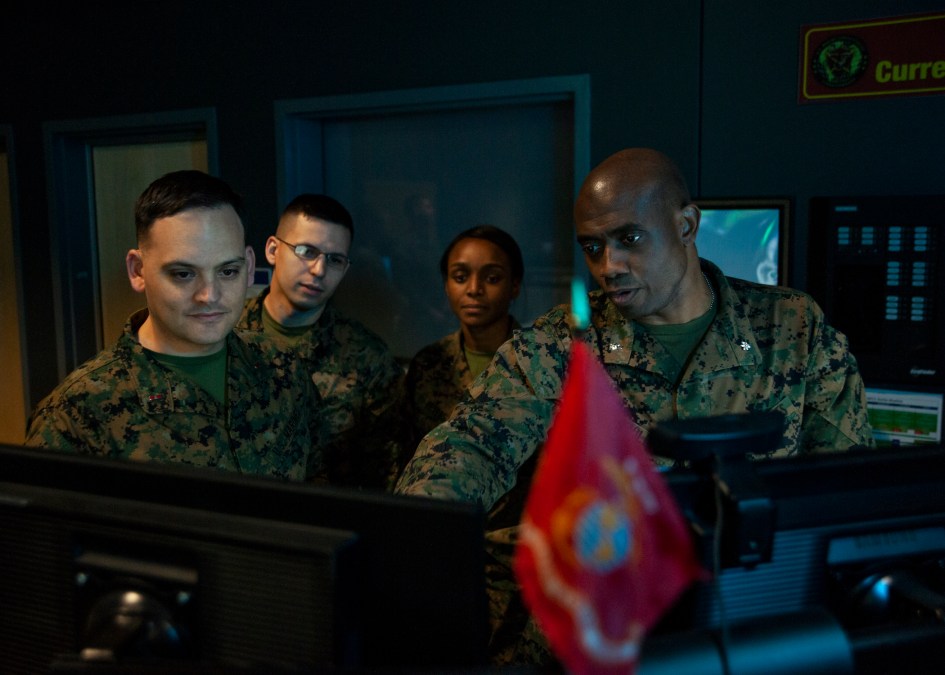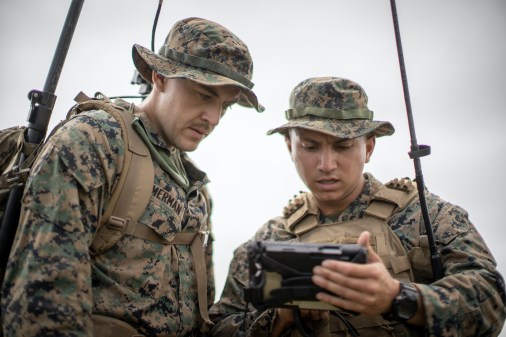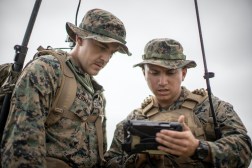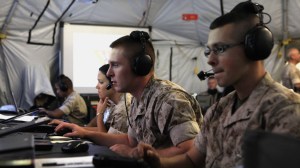Marine Corps’ new education strategy focuses on tech-driven ‘continuous’ learning

The Marine Corps wants to use technology to support “continuous learning” of its force, according to a new learning doctrine document released Monday.
The doctrine focuses on the broad principles of learning that will guide the education of Marines as the U.S. military faces new technological challenges in an era of great power competition.
The goal of “continuous learning” looks to leverage technology to bring knowledge to Marines dispersed across the globe, on ships in the middle of the ocean and classrooms across the nation and world.
The doctrine is the first major update to the Marines’ learning philosophy in more than 20 years, the corps’ top military official Gen. David Berger wrote.
“Projected future challenges for the Marine Corps include the potential for adversaries to achieve technological equivalence or superiority with the United States,” the document states. “That possibility, coupled with Marines’ expeditionary nature, means that the Marine Corps must be a more lethal, thinking force that fosters continuous personal and organizational learning based upon enduring principles.”
The Marine Corps’ education doctrine comes after the release of a new education strategy from the Department of the Navy, which houses the Marines Corps. The Navy’s strategy will in part implement the corps’ doctrine by expanding new education opportunities through leveraging tech like online courses and standing up the Navy Community College. The Navy previously said that its first cohort of community college graduates will focus on IT and cyber skills. The community college itself will not be a physical school but a central place to accumulate college credit from online and other courses taken at participating schools.
“Marines leverage the art and science of learning, technologies, and learning environments that reflect the changing operational environment to tailor learning and provide each other with constructive feedback,” the Marines’ document states.
Understanding and using — but not overly relying on — technology is critical to the Marines’ new educational focus.
“Marines must continuously improve their knowledge and skills by leveraging technology—but never depend upon technology alone as the solution,” the document states. The document also cautions leaders to teach about technology that will be useful on the battlefield. Network failures are a reality of war that Marines need to be ready for, it says. The ultimate goal is to develop highly-skilled Marines that have the cognitive prowess to face any challenge in war, according to the document.
“Marines cannot always rely on technologies or on being able to digitally search for information during combat due to many reasons, such as time constraints, lack of network access, or the need to minimize electronic signatures,” the document states.
A test case for tech training
Two tech officers in the Marine Corps offered their idea on how to get more tech wizardry into the Marine Corps through education. In an article for the Marine Corps Gazette, Master Gunnery Sgt. Samuel Carter and Master Sgt. Conor Mahoney outlined a strategy to “gamify” tech training in the corps.
Carter and Mahoney posit that continuous learning needs to shift away from a “more reps” mentality for skills like coding, cybersecurity and emerging technology development to being more incremental and iterative.
“(A)n alternate solution for code and mathematical related knowledge, skills, and attitudes may be a continuous micro-learning model that “gamifies” training through incremental rewards,” Carter and Mahoney wrote.
To gamify and offer short-term rewards for short-term success, the authors suggest re-thinking the traditional reward system. Currently, badges are awarded once a Marine has achieved success in a skill like marksmanship.
“[W]e propose incentivizing our information warriors to innovate and pursue new and more advanced skills through a more modern approach to positive reinforcement,” the Marines wrote.






